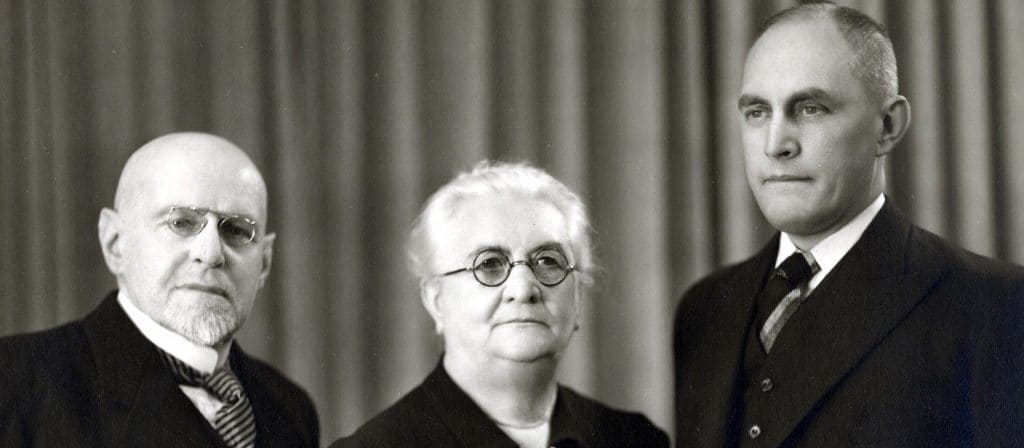Meet the stingiest man of the 20th century
In 1976, Henri Mastboom buys a new Opel Kadett. He left the protective film over the upholstery for twenty years. A stain is writing off. He would rather tour on creaky plastic. Twenty years after Henri's death, the blue Opel still stands in his barn on the dorpsstraat in Oud-Gastel. Showroom-worthy.
Eccentric behind shutters
In Halderberge, there are many stories about Henri Mastboom. Especially about the eccentric he ended up being. The man who took to the streets in his father's pre-war clothes. As if he walked out of an old movie.
He was once destined for the mayoralty of Oud-Gastel, like his grandfather and father before him. It didn't come to that. Stand-up society crumbles, the office passes him by. Henri locks himself behind the shutters of his parental home. Wooden shutters. Painted green, as they have always been.
Ideally, Henri would take everything upstairs. That was practically unfeasible, so he chooses the next best thing. He leaves everything to a foundation, with the aim of honouring the past. The parental home is now a museum.
Really save everything
The Mastboom family was a distinguished one, one with board positions, land, shares (including of the successful Gastelsche beetroot factory) and prestige. Money in abundance, but always very frugal. Mother Marie does her whole life with the calf-length shirts from her wedding outfit. Endlessly she mends them. Father Mastboom's frugal policy is notorious. This reputation is partly to blame for the fact that the mayoralty of Oud-Gastel eluded him.
In terms of frugality, Henri follows his parents' line perpendicularly. After their death, he keeps everything. Not even a dropped button does he discard. On food stamps from the war he notes worthless. You can find them in the Mastboom house, they are in the front room. In one of those cupboards where you put things that don't belong anywhere. Henri has many such cupboards.
Tenant farmers must wait
Henri clings his adult life to the way things used to be: a society where everyone had a clear place. In Oud-Gastel, the Mastboom family is at the top. Below that, the rest dangles.
He treats his tenants with inferiority. Those who come to pay the rent often have to wait for hours on a wooden bench in the hall. And Henri expects a meagre lifestyle from them. When he announces his tour of the estates, they hide modern achievements like radio or television. They don't want to give Henri the idea that there is money for more than the essentials. If he smells that, the rent goes up. "Otherwise you will just throw it over the bar anyway," he says.
No one knew Henri
Henri's life could have been very different. After the death of his parents, he is sitting on a nice fortune. And the income is just flowing nicely. Of course, it is disappointing not to become mayor when you have been prepared for it from childhood.
Missing out on a future path set in stone can also be a liberation. There is more to experience than ruling Oud-Gastel. Henri does not seek it out. He does not arrive at a new plan. A hefty burnout, it seems.
How Henri felt? No one knows for sure. Nor was there anyone really close to him. He had people who cared for him. Some for a long time. If you visit the Mastboom House, you may meet them. They guide you around and tell stories - yet with a certain love - about that special man. For Henri, they always remained staff.
For his parents?
Henri was certainly not a stupid boy. Master of law. Seen quite a bit of the world too, especially for someone of his time. Why does he fail to adjust his vision of the future? Why does he cling to his parents' ideas until the end of his life?
What would you do with 20 million euros? That's pretty much the capital Henri Mastboom has been sitting on. Nothing he gives away. No one does he lend anything to. He manages the assets as if his late parents would soon return to pick up their lives where they left off.
Not a companion animal
As a young lad, a litter of young kittens comes his way. He strokes them, picks one up. His parents grant him the kitten; it can come to the Mastboom House when it is big enough. Henri calculates on a note what such a pet would cost. The food alone! He is not interested in a cat.
A woman never comes either. Of the Mastboom family in Oud-Gastel, only the property remains. And that possession tells the story of the family in general and the eccentric in particular. During his life, Henri did not let himself be known. The Mastboom House shares his life story posthumously.


